Anpassungsfähigkeit und Resilienz des Finanzsystems
Diese Forschungsgruppe untersucht kritische Aspekte der Anpassungsfähigkeit und Widerstandsfähigkeit von Finanzsystemen. Sie analysiert die Auswirkungen von Naturkatastrophen auf Finanzsysteme, die Auswirkungen politischer Präferenzen für die grüne Transformation und die Bedeutung von Kultur in den Volkswirtschaften.
Forschungscluster
Finanzresilienz und RegulierungIhr Kontakt

Mitglied - Abteilung Finanzmärkte
PROJEKTE
07.2016 ‐ 12.2018
Relationship Lenders and Unorthodox Monetary Policy: Investment, Employment, and Resource Reallocation Effects
Leibniz-Gemeinschaft
We combine a number of unique and proprietary data sources to measure the impact of relationship lenders and unconventional monetary policy during and after the European sovereign debt crisis on the real economy. Establishing systematic links between different research data centers (Forschungsdatenzentren, FDZ) and central banks with detailed micro-level information on both financial and real activity is the stand-alone proposition of our proposal. The main objective is to permit the identification of causal effects, or their absence, regarding which policies were conducive to mitigate financial shocks and stimulate real economic activities, such as employment, investment, or the closure of plants.
01.2015 ‐ 12.2019
Interactions between Bank-specific Risk and Macroeconomic Performance
Deutsche Forschungsgemeinschaft (DFG)
Referierte Publikationen
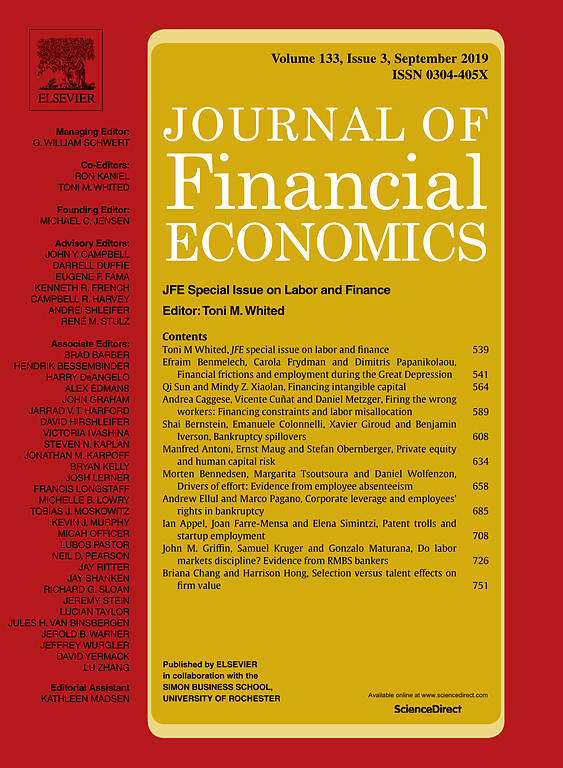
Democracy and Credit
in: Journal of Financial Economics, Nr. 2, 2020
Abstract
Does democratization reduce the cost of credit? Using global syndicated loan data from 1984 to 2014, we find that democratization has a sizable negative effect on loan spreads: a 1-point increase in the zero-to-ten Polity IV index of democracy shaves at least 19 basis points off spreads, but likely more. Reversals to autocracy hike spreads more strongly. Our findings are robust to the comprehensive inclusion of relevant controls, to the instrumentation with regional waves of democratization, and to a battery of other sensitivity tests. We thus highlight the lower cost of loans as one relevant mechanism through which democratization can affect economic development.
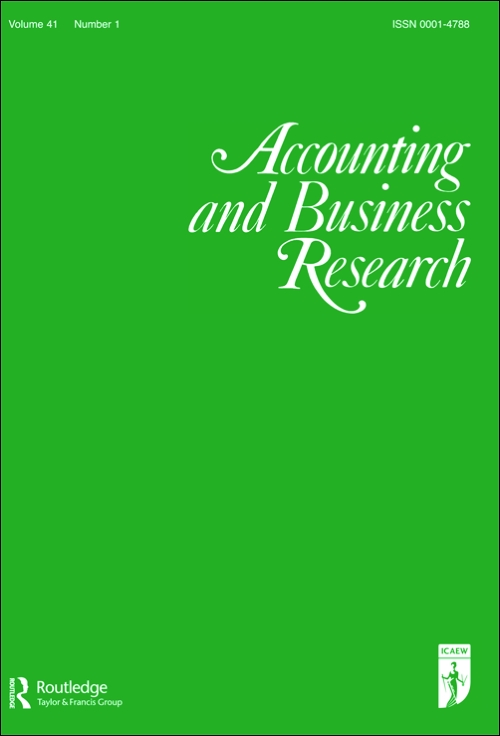
Bank Accounting Regulations, Enforcement Mechanisms, and Financial Statement Informativeness: Cross-country Evidence
in: Accounting and Business Research, Nr. 3, 2020
Abstract
We construct measures of accounting regulations and enforcement mechanisms that are specific to a country's banking industry. Using a sample of major banks in 37 economies, we find that the informativeness of banks’ financial statements, measured by the value relevance of earnings and common equity, is higher in countries with stricter bank accounting regulations and countries with stronger enforcement. These findings suggest that superior bank accounting and enforcement mechanisms enhance the informativeness of banks’ financial statements. In addition, we find that the effects of bank accounting regulations are more pronounced in countries with stronger enforcement in the banking industry, suggesting that enforcement is complementary to bank accounting regulations in achieving higher value relevance of financial statements. Our study has important policy implications for bank regulators.
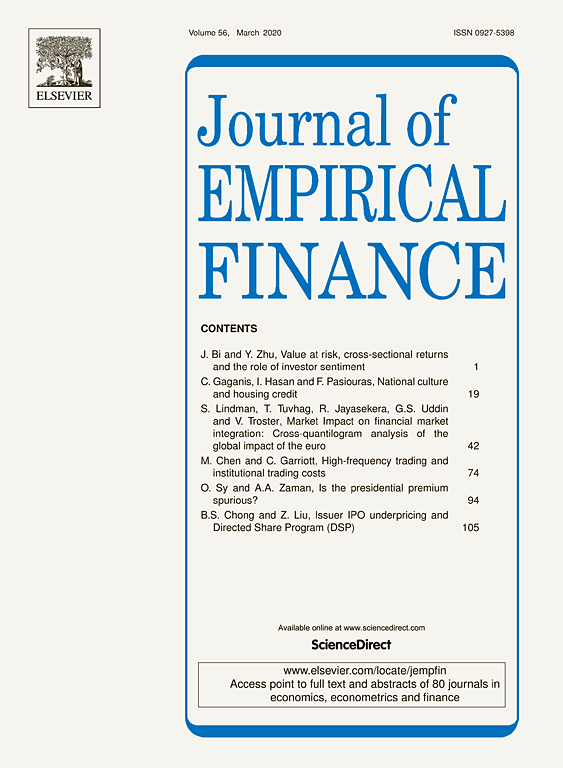
National Culture and Housing Credit
in: Journal of Empirical Finance, March 2020
Abstract
Using a sample of around 30 countries over the period 2001–2015, this study provides evidence that deeply rooted cultural differences are significantly associated with the use of mortgage debt. More detailed, we find that power distance and uncertainty avoidance have a negative impact on the value of the total outstanding residential loans to GDP. This finding is robust across various specifications and the use of alternative measures of mortgage debt. In contrast, trust has a positive and robust impact on all the measures of mortgage debt. Other dimensions of national culture like long-term orientation, individualism, and indulgence, also appear to matter; however, their impact depends on the control variables and the employed measure of mortgage debt.
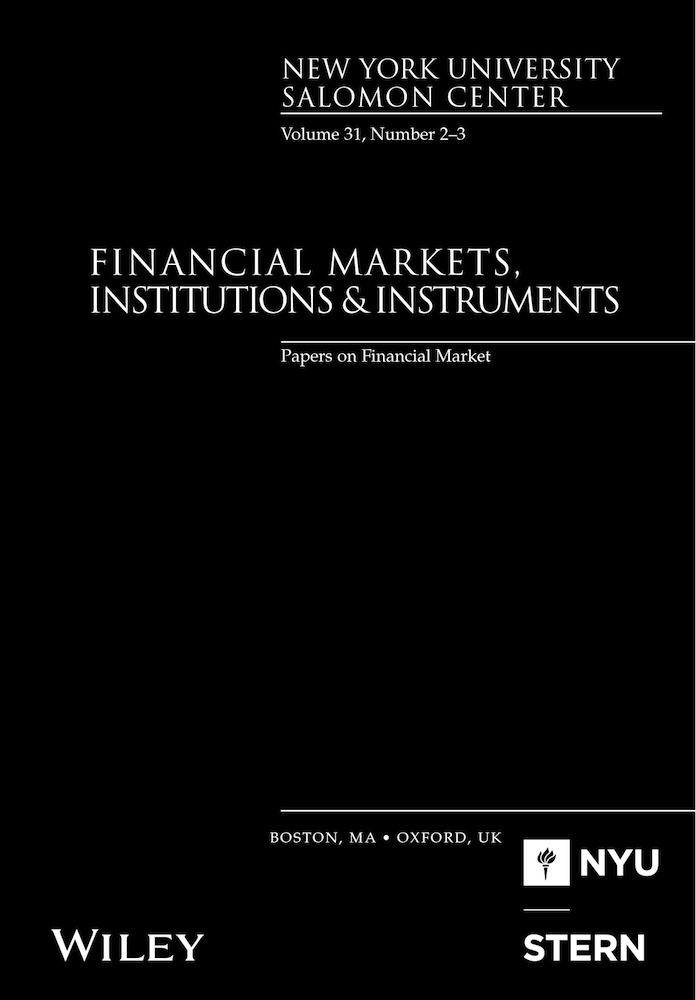
Motivating High‐impact Innovation: Evidence from Managerial Compensation Contracts
in: Financial Markets, Institutions and Instruments, Nr. 3, 2019
Abstract
We investigate the relationship between Chief Executive Officer (CEO) compensation and firm innovation and find that long‐term incentives in the form of options, especially unvested options, and protection from managerial termination in the form of golden parachutes are positively related to corporate innovation, and particularly to high‐impact, exploratory (new knowledge creation) invention. Conversely, non‐equity pay has a detrimental effect on the input, output and impact of innovation. Tests using the passage of an option expensing regulation (FAS 123R) as an exogenous shock to option compensation suggest a causal interpretation for the link between long‐term pay incentives, patents and citations. Furthermore, we find that the decline in option pay following the implementation of FAS 123R has led to a significant reduction in exploratory innovation and therefore had a detrimental effect on innovation output. Overall, our findings support the idea that compensation contracts that protect from early project failure and incentivize long‐term commitment are more suitable for inducing high‐impact corporate innovation.
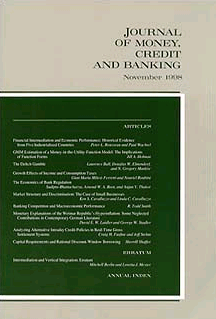
Lock‐in Effects in Relationship Lending: Evidence from DIP Loans
in: Journal of Money, Credit and Banking, Nr. 4, 2019
Abstract
Do prior lending relationships result in pass‐through savings (lower interest rates) for borrowers, or do they lock in higher costs for borrowers? Theoretical models suggest that when borrowers experience greater information asymmetry, higher switching costs, and limited access to capital markets, they become locked into higher costs from their existing lenders. Firms in Chapter 11 seeking debtor‐in‐possession (DIP) financing often fit this profile. We investigate the presence of lock‐in effects using a sample of 348 DIP loans. We account for endogeneity using the instrument variable (IV) approach and the Heckman selection model and find consistent evidence that prior lending relationship is associated with higher interest costs and the effect is more severe for stronger existing relationships. Our study provides direct evidence that prior lending relationships do create a lock‐in effect under certain circumstances, such as DIP financing.
Arbeitspapiere
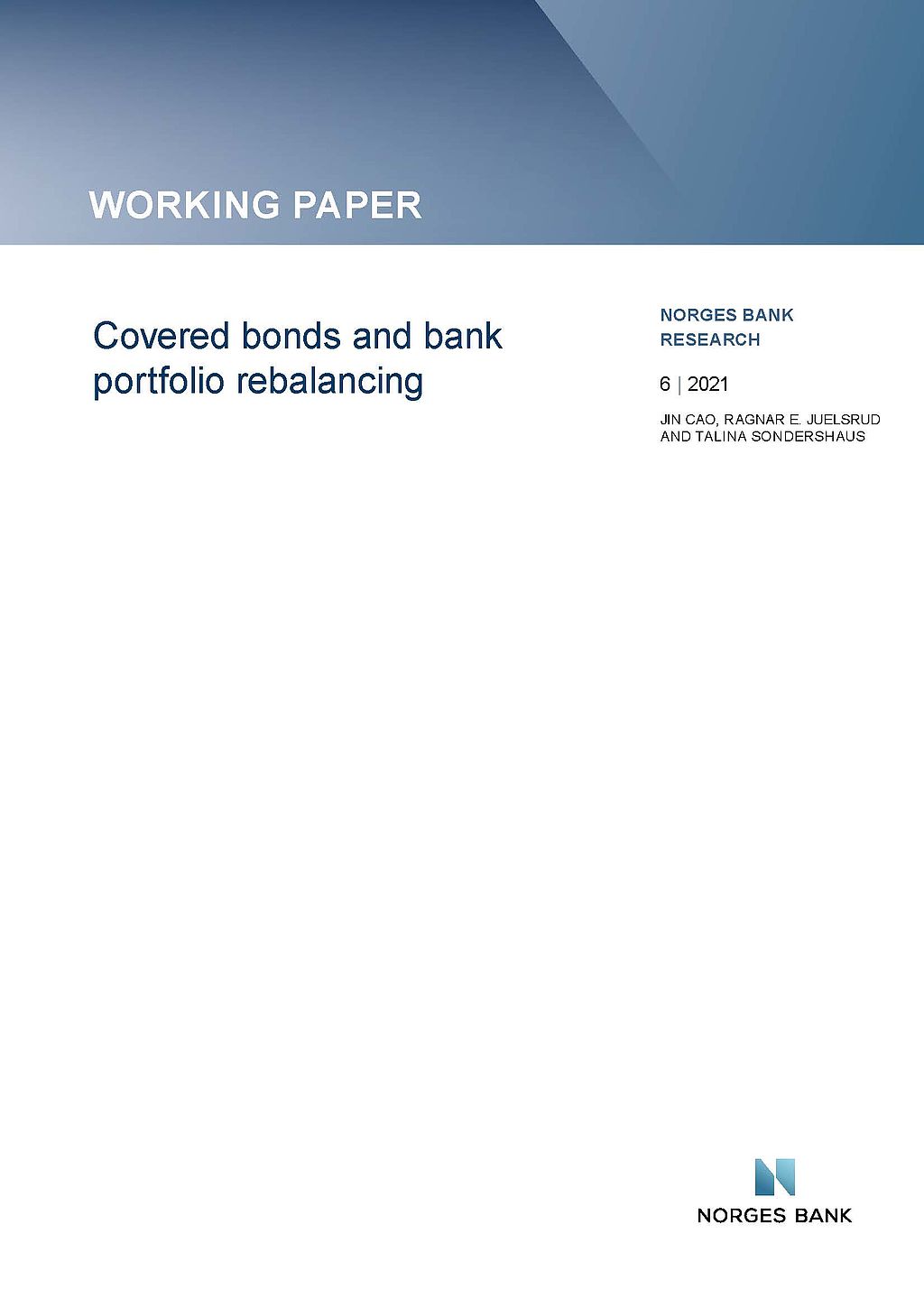
Covered Bonds and Bank Portfolio Rebalancing
in: Norges Bank Working Papers, Nr. 6, 2021
Abstract
We use administrative and supervisory data at the bank and loan level to investigate the impact of the introduction of covered bonds on the composition of bank balance sheets and bank risk. Covered bonds, despite being collateralized by mortgages, lead to a shift in bank lending from mortgages to corporate loans. Young and low-rated firms in particular receive more credit, suggesting that overall credit risk increases. At the same time, we find that total balance sheet liquidity increases. We identify the channel in a theoretical model and provide empirical evidence: Banks with low initial liquidity and banks with sufficiently high risk-adjusted return on firm lending drive the results.
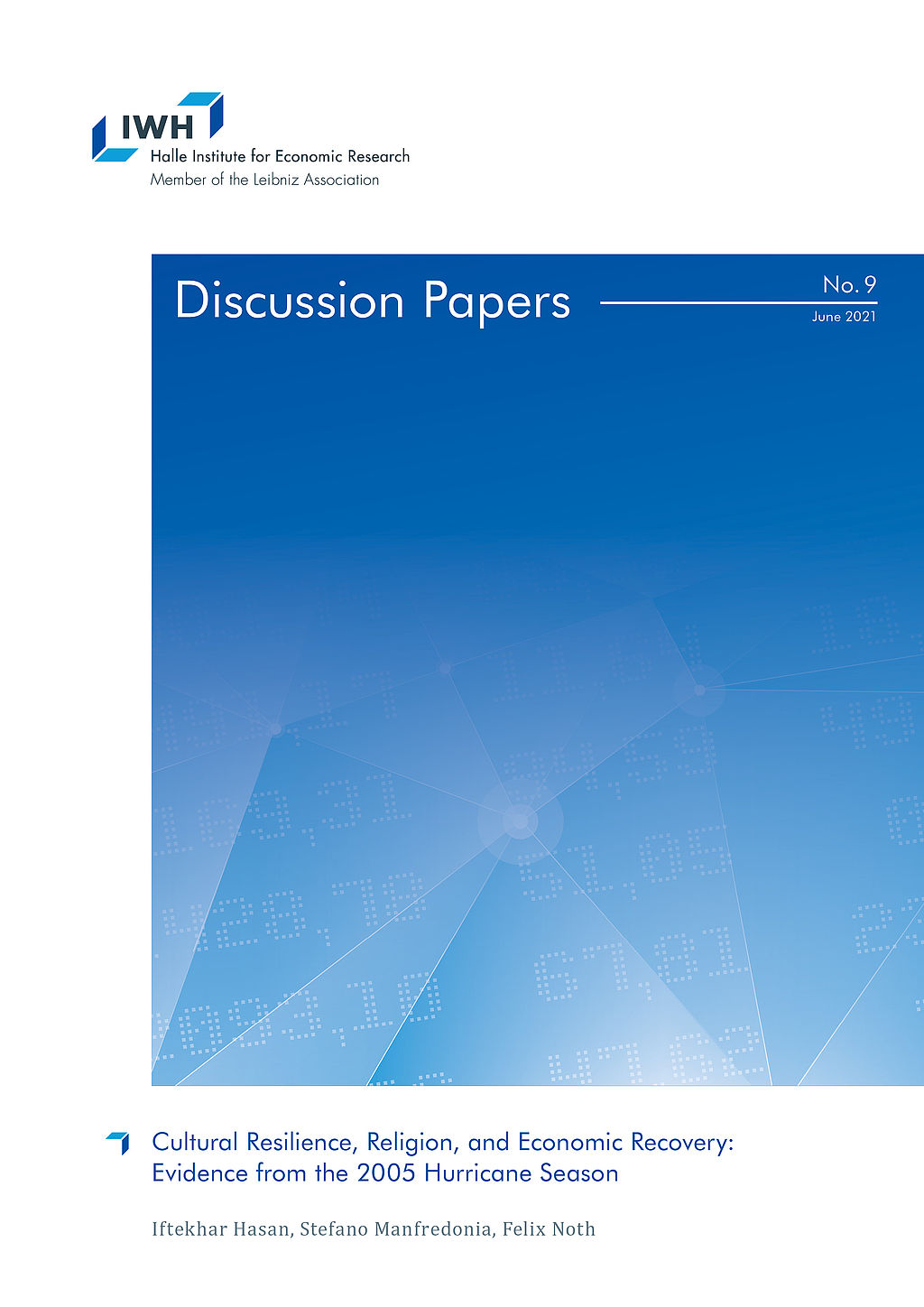
Cultural Resilience, Religion, and Economic Recovery: Evidence from the 2005 Hurricane Season
in: IWH Discussion Papers, Nr. 9, 2021
Abstract
This paper investigates the critical role of religion in the economic recovery after high-impact natural disasters. Exploiting the 2005 hurricane season in the southeast United States, we document that establishments in counties with higher religious adherence rates saw a significantly stronger recovery in terms of productivity for 2005-2010. Our results further suggest that a particular religious denomination does not drive the effect. We observe that different aspects of religion, such as adherence, shared experiences from ancestors, and institutionalised features, all drive the effect on recovery. Our results matter since they underline the importance of cultural characteristics like religion during and after economic crises.
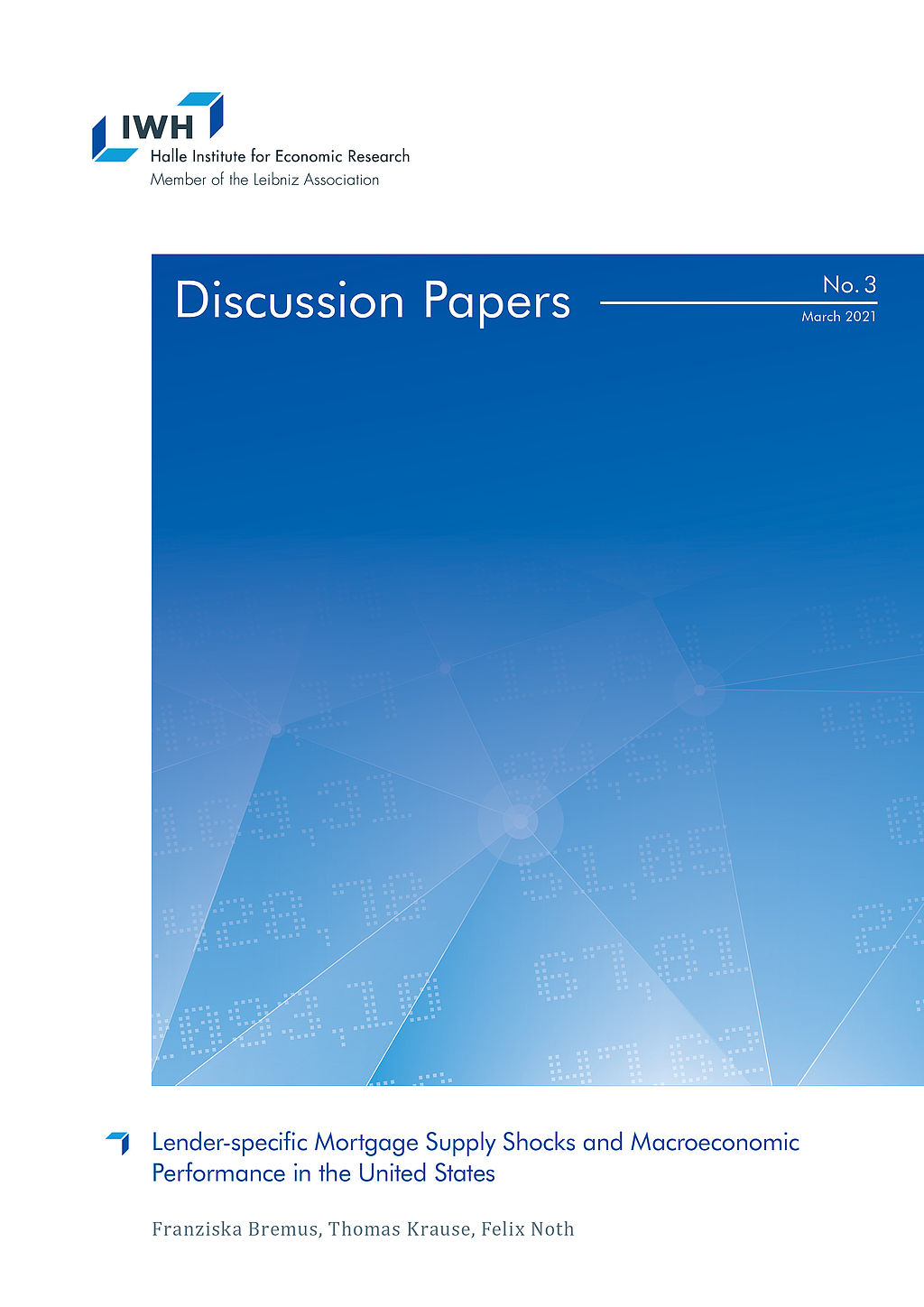
Lender-specific Mortgage Supply Shocks and Macroeconomic Performance in the United States
in: IWH Discussion Papers, Nr. 3, 2021
Abstract
This paper provides evidence for the propagation of idiosyncratic mortgage supply shocks to the macroeconomy. Based on micro-level data from the Home Mortgage Disclosure Act for the 1990-2016 period, our results suggest that lender-specific mortgage supply shocks affect aggregate mortgage, house price, and employment dynamics at the regional level. The larger the idiosyncratic shocks to newly issued mortgages, the stronger are mortgage, house price, and employment growth. While shocks at the level of shadow banks significantly affect mortgage and house price dynamics, too, they do not matter much for employment.
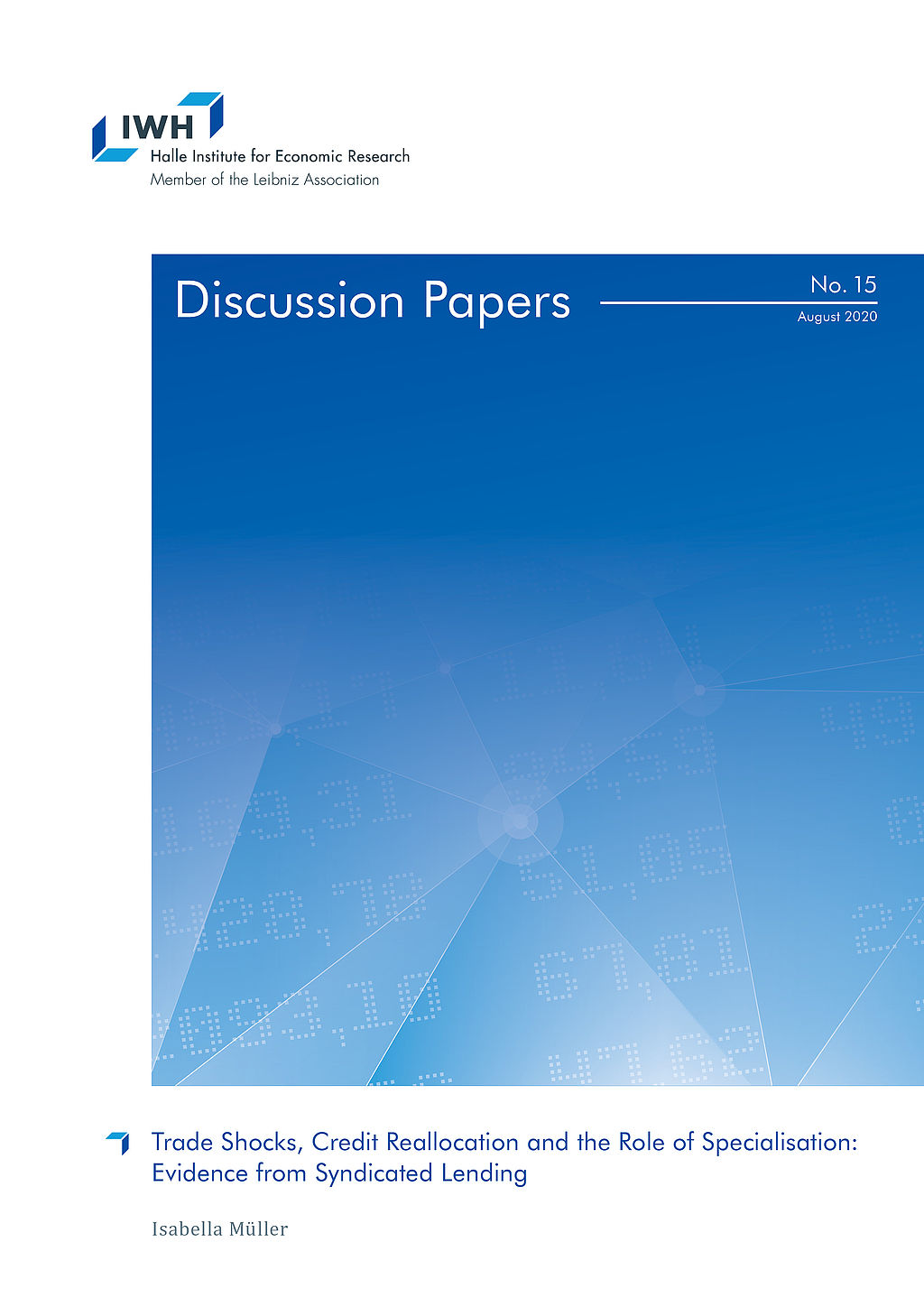
Trade Shocks, Credit Reallocation and the Role of Specialisation: Evidence from Syndicated Lending
in: IWH Discussion Papers, Nr. 15, 2020
Abstract
This paper provides evidence that banks cut lending to US borrowers as a consequence of a trade shock. This adverse reaction is stronger for banks with higher ex-ante lending to US industries hit by the trade shock. Importantly, I document large heterogeneity in banks‘ reaction depending on their sectoral specialisation. Banks shield industries in which they are specialised in and at the same time reduce the availability of credit to industries they are not specialised in. The latter is driven by low-capital banks and lending to firms that are themselves hit by the trade shock. Banks‘ adjustments have adverse real effects.
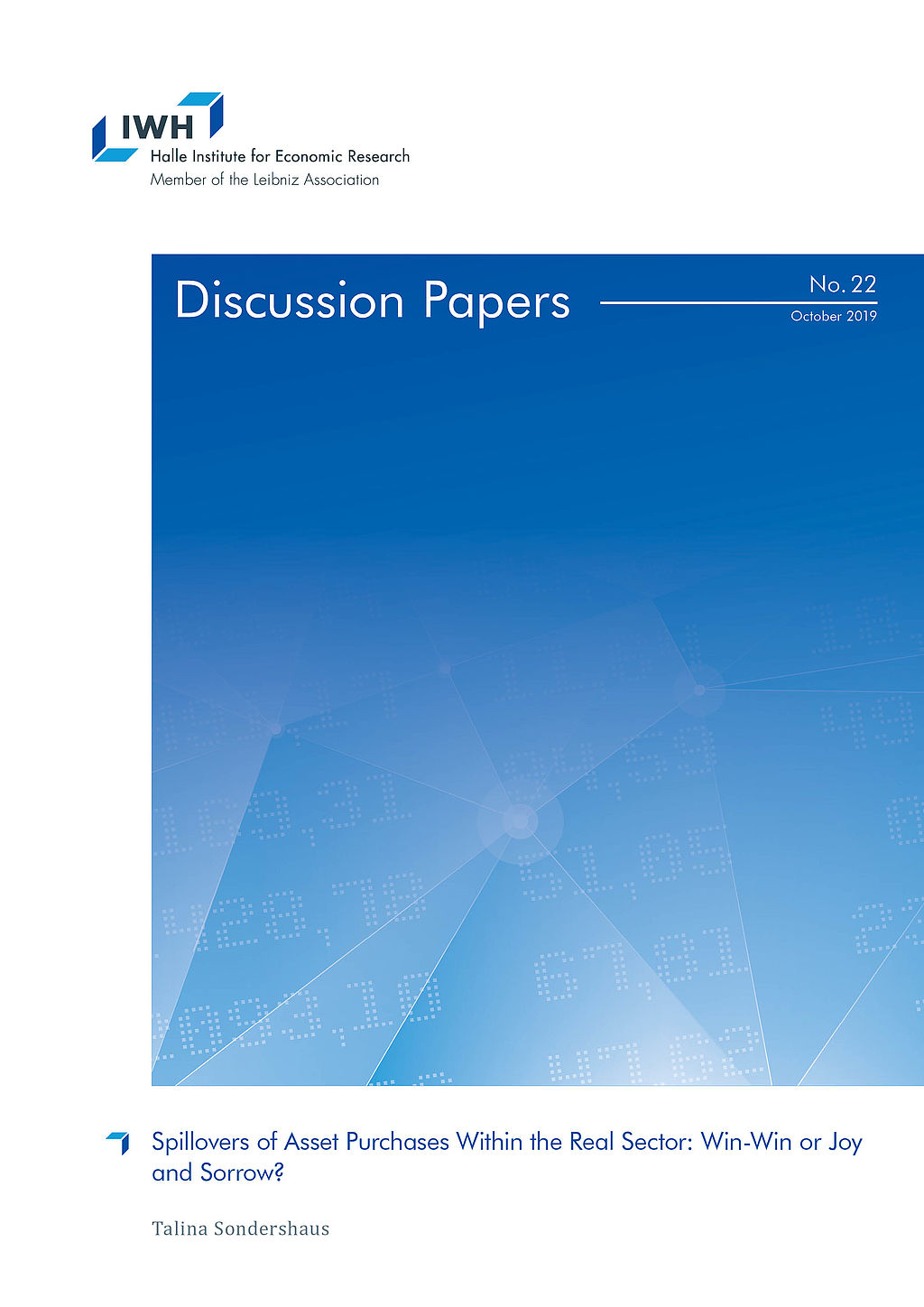
Spillovers of Asset Purchases Within the Real Sector: Win-Win or Joy and Sorrow?
in: IWH Discussion Papers, Nr. 22, 2019
Abstract
Events which have an adverse or positive effect on some firms can disseminate through the economy to firms which are not directly affected. By exploiting the first large sovereign bond purchase programme of the ECB, this paper investigates whether more lending to some firms spill over to firms in the surroundings of direct beneficiaries. Firms operating in the same industry and region invest less and reduce employment. The paper shows the importance to consider spillover effects when assessing unconventional monetary policies: Differences between treatment and control groups can be entirely attributed to negative effects on the control group.


















